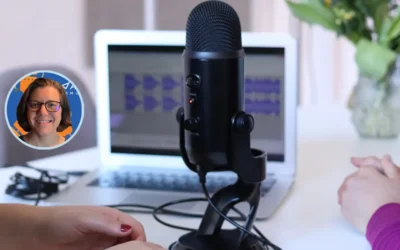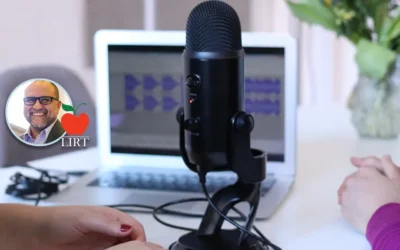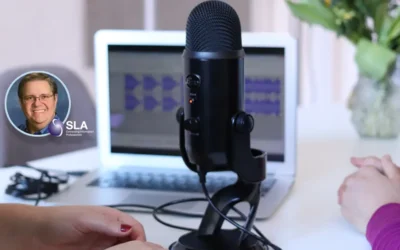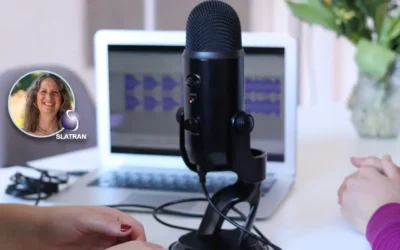Internet of Things and Libraries: Technology Trends that Aren’t “Out-There” Anymore!

Stephen Abram
Special librarians need to keep our eye on the Internet of Things, since it not only reduces the friction between user and their goals for turning on lightbulbs, meeting with each other, and managing their viewing habits, it’s already a long way into exploring the content universes that they rely on.
What is the Internet of Things?
Per Wikipedia, “The Internet of things (IoT) is the network of physical devices, vehicles, home appliances, and other items embedded with electronics, software, sensors, actuators, and connectivity which enables these things to connect, collect and exchange data, creating opportunities for more direct integration of the physical world into computer-based systems, resulting in efficiency improvements, economic benefits, and reduced human exertions.”
The number of IoT devices increased 31% year-over-year to 8.4 billion in the year 2017 and it is estimated that there will be 30 billion devices by 2020.The global market value of IoT is projected to reach $7.1 trillion by 2020.
Per TechTarget, “IoT involves extending Internet connectivity beyond standard devices, such as desktops, laptops, smartphones and tablets, to any range of traditionally dumb or non-internet-enabled physical devices and everyday objects. Embedded with technology, these devices can communicate and interact over the Internet, and they can be remotely monitored and controlled.”
Yes, this is a trend—and looking at the BIG guys’ (Google, Amazon, Apple) research agendas and announcements, we know it’s here to stay.
That said, the emphasis now is:
- The doorbell is a thing
- The refrigerator is a thing
- The microwave is a thing
- Lamps are things
- TVs are a thing
- Cars are a thing
- Etc. etc. etc.
Internet of Things and Libraries
So, where’s the library angle?
- Books are a thing
- Databases are a thing
- Classrooms are a thing
- Meeting rooms are a thing
- Articles are a thing
- Devices like iPhones are a thing
- Libraries are a thing
- Movies and podcasts are a thing
Our voice response devices are transcending the keyboard as an access point to using our voices.
- “Alexa, read me a book.”
- “Alexa, show me that movie.”
- “Hey Google, choose a podcast for me from my faves.”
- “Cortana recommend something for me to read.”
- “Alexa, please set up this meeting room for a presentation by WebEx.”
- We’re already seeing books transforming.
As mentioned, the Internet of Things is already a long way into exploring the content universes that special library users rely on. Thinking of the Internet of Things and libraries, how will you leverage “things” to expand your reach and increase access?
-Stephen

Stephen Abram
Stephen Abram is a popular Lucidea Webinars presenter and consultant. He is the past president of SLA, and the Canadian and Ontario Library Associations. He is the CEO of Lighthouse Consulting and the executive director of the Federation of Ontario Public Libraries. He also blogs personally at Stephen’s Lighthouse. Check out his new book from Lucidea Press, Succeeding in the World of Special Librarianship! (Click image below to get your free copy!) Read also Stephen’s other blog posts for Lucidea on how new technologies can be used in libraries and special libraries.
Similar Posts
Interview with Susannah Barnes about the SLA Data Community
Susannah Barnes is the Co-Lead of the Data Community for the Special Libraries Association. If you work with data in any capacity, this interview will be of interest to you.
Interview with Victor Baeza about ALA’s Library Instruction Round Table
Interview with Victor Baeza, President of LIRT, about how it benefits from and supports special librarians whose roles involve teaching or training.
Interview with Eugene Giudice, SLA Treasurer
Interview with SLA’s Treasurer about the future of the special library profession and how the Special Libraries Association can benefit librarians
Interview with Cara Marcus on Transportation Librarianship and SLA
Interview with Cara Marcus, the president of the Special Libraries Association (SLA) transportation community about transportation libraries and SLA
Hosting service
Enjoy all of the benefits of your Lucidea solution with secure, reliable, stress free hosting
Programs & incentives
No matter your size or budget, we’ve got you covered, today and tomorrow




Leave a Comment
Comments are reviewed and must adhere to our comments policy.
0 Comments